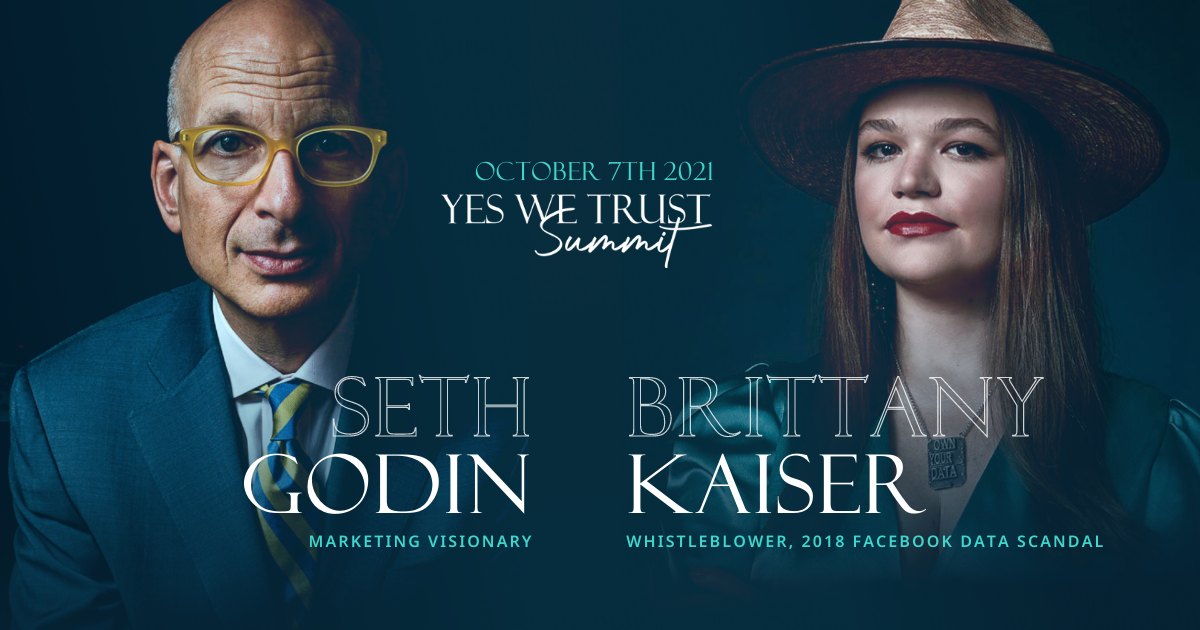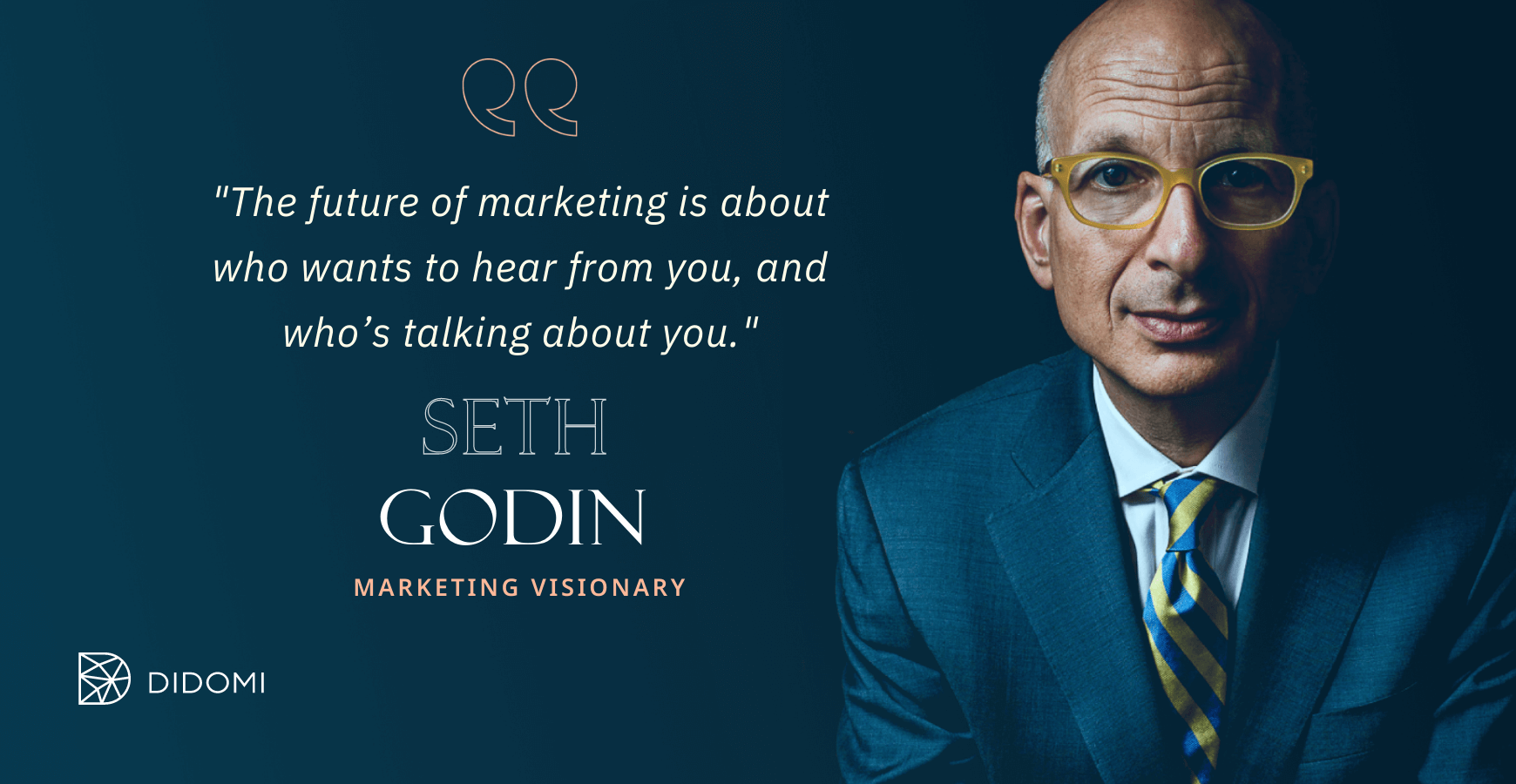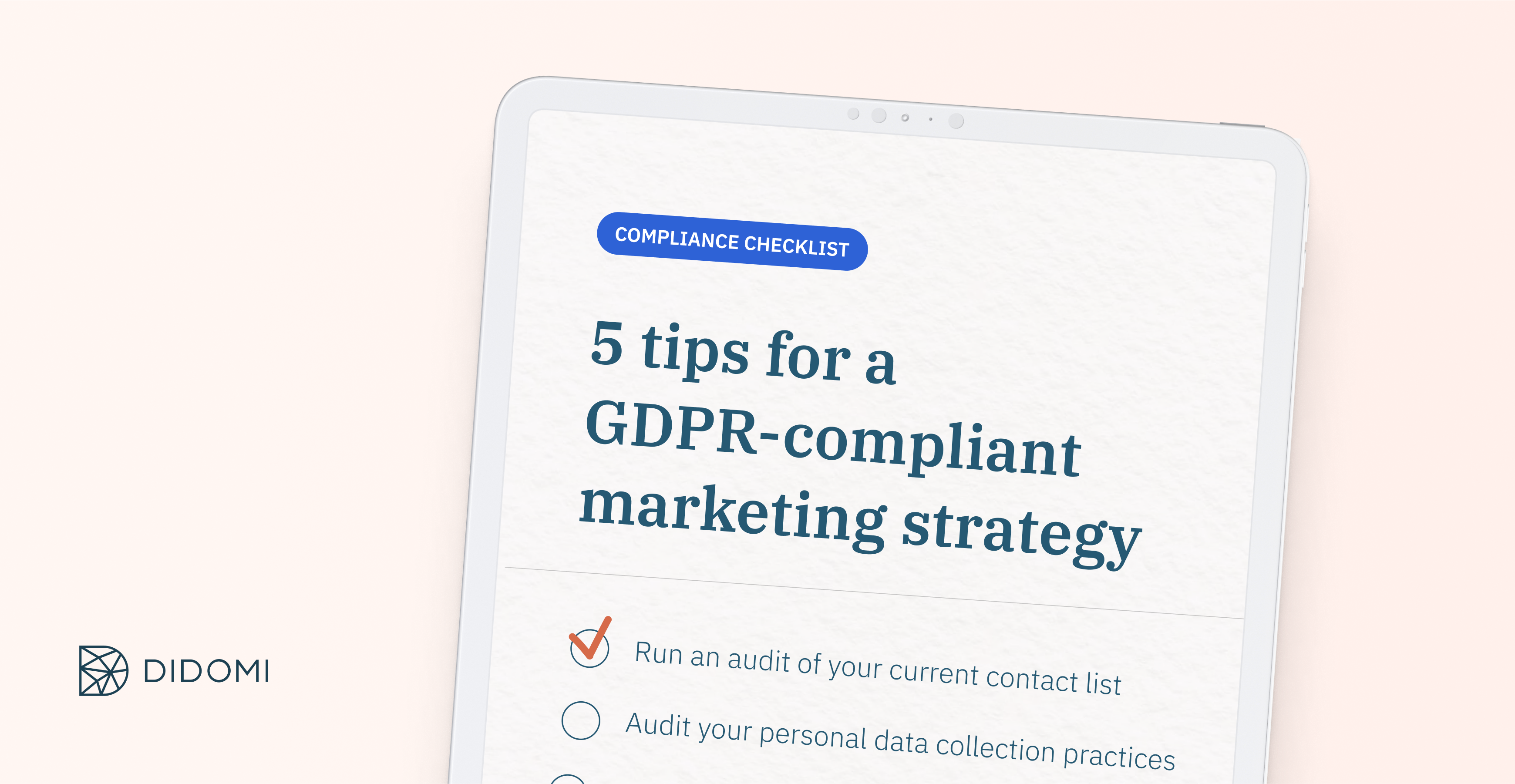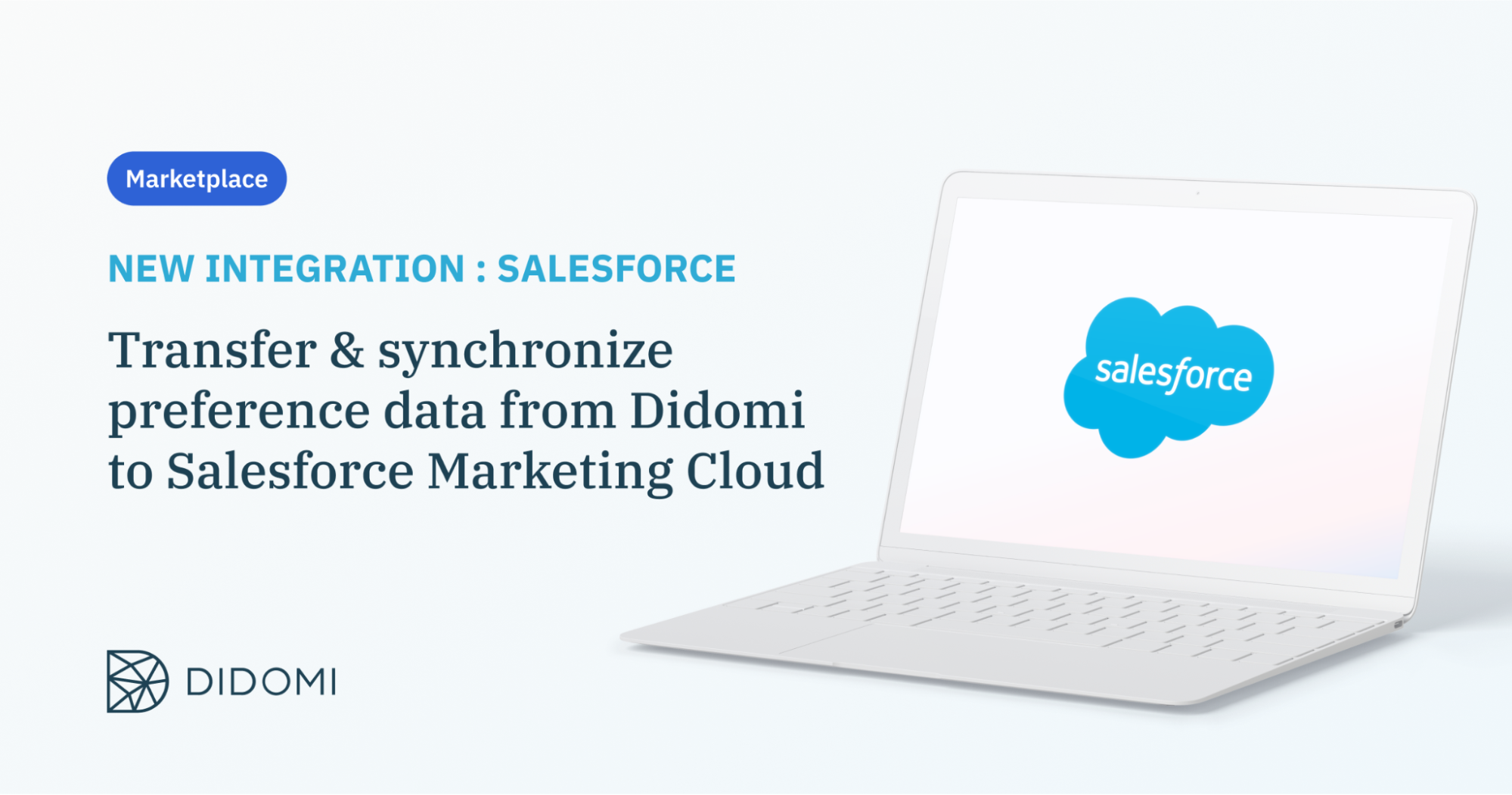The future of marketing is not about the amount of attention and data you can steal. It’s not about who you can interrupt. It’s about who wants to hear from you. It’s about convincing the people in the market who want to be convinced – regardless of what your privacy policy says. And this all comes down to trust.
This is the argument made by marketing visionary and bestselling author Seth Godin in his closing keynote speech for the recent Yes We Trust Summit, a worldwide, 100% digital event initiated by Didomi, exploring how privacy drives business by fostering trust among consumers, within organizations and across the entire digital ecosystem.
Summary:
Making change happen
Marketing isn’t advertising, although it used to be. For years, if you said you were in marketing, you were actually in advertising. If you spent $5 on television, for example, you’d make $10, and you could do it again. But this came to a screeching halt in the 90s, when we went from having two or three TV networks, to having a thousand, and now, millions. All those people working in advertising – or attention-based marketing – no longer knew what to do.
They’d forgotten the need to ask a couple of simple questions – Why are we here? What do we make?
The simple answer is, we’re here to make a change happen. That change might be to turn someone who hasn’t bought a product before into someone that has. But it’s significantly more profound than that. Making this change requires practical empathy.
Promising trust and privacy
With practical empathy, that person doesn’t know what you know, they don’t want what you want, and they don’t see what you see. And that’s okay. However, if we can’t appreciate that it’s okay, then should we expect them to come to us?
Marketers are under all sorts of pressure. They’re forced to take all sorts of shortcuts. And customers don’t care about any of it. They don’t want email – they want me-mail. It’s fundamental to permission marketing – delivering anticipated, personal, relevant messages to people who want to receive them. Marketers need to be on the hook.
.png?width=3000&name=YWT%20%20Social%20posts%20(28).png)
Think of it like fly-fishing. As marketers, as leaders, as brands, as people trying to make a change happen, we need to be on the hook. It’s the joy of making a promise to people about trust and privacy so that we can engage with them.
Reaching the smallest viable audience
A remarkable product or service is one that’s worth making a remark about. People don’t talk about you because they like you. They talk about you because they like themselves. The opportunity we have, even when creating something as banal as a privacy notice, is to come across in a way that impacts a person so much they’d miss us if we weren’t here; that impacts them so much they’d tell others – in a way that’s remarkable.
Ask yourself the following questions about the product you’re making, the website you’re building, or the service you’re offering: Who is it for? Who exactly are you seeking to serve and to change? And what is it for? What change are you seeking to make?
Once you know who you’re seeking to serve, you’ve identified the smallest viable audience. Too often, we’re seduced into thinking we have to reach everyone. We believe we have to make average products for average people and get the word out as far as possible.
But that’s wrong. The internet isn’t a mass medium. You can still reach more people with a TV ad than an internet ad. It is good at reaching someone, though – that smallest viable audience.
This isn’t a compromise. It’s the core of what you’re building. If you can’t serve and delight a small group of people so much that they eagerly want to hear from you, that they’ll miss you if you’re gone, that they’ll tell their friends about you – then you’ve got no chance of reaching a larger audience.
%20(1).png?width=3000&name=YWT%20%20Social%20posts%20(27)%20(1).png)
Joining us on a journey
Privacy matters, of course, although your customers don’t actually care about it enough to read 30 pages of terms and conditions. If they did, they wouldn’t have a credit card, they wouldn’t use a search engine, and they wouldn’t buy anything from Amazon. What they care about is trust.
Too much of what happens on the internet is about auctioning off attention, figuring out how to discover what we can about people so we can get more attention from them. But it’s not about privacy, and it’s not about attention. It’s about marketing with people, not at them.
We’re seeking enrolment. We’re seeking customers who trust us, and want to go on a journey with us, who will eagerly and voluntarily give us their information. In fact, we’re looking for people who would actually pay us extra to know more about them.
Conclusion… Choose to be remarkable
A short, illustrative aside: If you look up in the air, you’ll see birds flying in formation. But their leadership is voluntary. They don’t have to follow the lead bird. They can choose to follow it.
The opportunity for marketers, then, is not to skulk around in the dark and see what you can find, but to lead in a way that customers will want to put you on the hook and keep your promise.
They don’t need your fine print. They need your leadership. So lead. Do something because you can, not because you must. Choose to matter. Choose to be remarkable.
Building trust is at the core of all of this. It’s the reason we created Yes We Trust – to show how investing in trust is the best investment a company can make.





%20(2).png?width=3600&name=YWT%20%20Social%20posts%20(26)%20(2).png)



